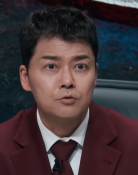What restaurants near Cheong Wa Dae tell us
What restaurants near Cheong Wa Dae tell us
Posted February. 02, 2019 07:30,
Updated February. 02, 2019 07:30
Old restaurants in central Seoul, especially the ones near the presidential office Cheong Wa Dae, often tell us how people are looking at the world. Apart from the autograph of former U.N. Secretary-General Ban Ki-moon, why did this cold noodle restaurant put the autograph of Yoon Seok-yeol, chief of Seoul Central District Prosecutors’ Office? This is perhaps because people still associate the Moon Jae-in administration with the eradication of deep-rooted evils. It also demonstrates that Yoon, who had led the effort to root out corruption, is talked about more than any other public figures at least in this place.
An income-led growth and the second North Korea-U.S. summit are all important issues, but what appeals most to people is the government’s drive to stamp out corruption that resulted in the imprisonment of former President Park Geun-hye in 2017, former President Lee Myung-bak in 2018, and former Supreme Court Chief Justice Yang Sung-tae this year. The sentence for South Gyeongsang Governor Kim Kyung-soo can be also seen within the same context as the ruling party claims that it was a retaliatory trial. Moreover, chief secretaries of the president were all replaced at the start of this year, but presidential secretary for civil affairs Cho Kuk was the only exception, who is in charge of the initiative to get rid of social evils and reform the judicial branch.
The sentence for Kim Kyung-soo has provoked a whirlwind of heated debates over the nation’s anti-corruption efforts. The ruling party has snubbed the separation of powers while the opposition parties have even called for the invalidity of the presidential election. Veteran politicians express despair, saying that the nation’s politics has completely lost the sense of self-respect and presence amid a series of controversial cases. “We are living in a country dominated by the judiciary including prosecutors and judges,” a leading figure in the ruling party said. Another influential politician in the opposition bloc said “The political parties are harming themselves by taking every single issue to the prosecution. This hurts not only the opposition parties but the ruling party.”
National Assembly Speaker Moon Hee-sang, who had busied himself about restoring the nation’s politics surrounding the National Assembly since taking office in last July, has also given voice to frustration. “Spring will come soon, but will it arrive in the National Assembly, too?” was what he reportedly said bitterly. I hate to say this, but it seems unlikely that flowers will blossom in politics anytime soon, if things continue to be swayed by the presidential office and courts.
Seung-Heon Lee ddr@donga.com







